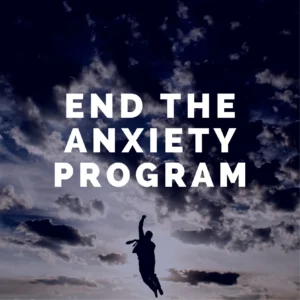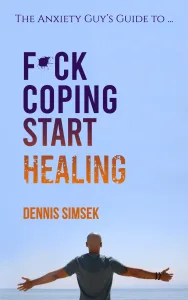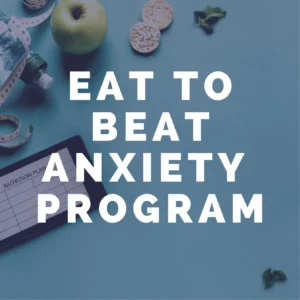Your relationship to Health anxiety, or hypochondria, feels as though it’s a secret weight on our backs. It’s that constant nervousness that every little symptom could be an obvious sign of it being something worse. It’s an exhausting and all powerful nagging fear which puts you into a cycle of uncertainty.
- The Illusion of Control: How Health Anxiety Keeps Us Trapped
- The Root Cause of Anxiety: Fear of Being Out of Control
- The Impact of Health Anxiety on Our Lives
- Mindfulness and Self-Compassion: Calming the Nervous System
- A New Perspective: Recognizing Health Anxiety as a Relationship
- Taking Control: Starting Your Journey Today
- Resources for Support: The Health Anxiety Program
The Illusion of Control: How Health Anxiety Keeps Us Trapped
Often when health anxious we try and regain control by constantly checking our bodies. We obssessively check our pulse, blood pressure, or temperature and think if the can get ourselves on top of what ever close to that we will be fine. This vigilance however doesn’t end up in any risk reduction; this vigilance leads us to become more in tune with every little twinge or sensation.1

The Cycle of Reassurance: A Never-Ending Loop
But we also want to reassure other people, thinking that if someone can just tell us we’re okay, we’ll feel better. Sadly, the cycle of reassurance leaves us not feeling satisfied, and uncertain once more. The reassurance we get begins to start disappearing and we begin to doubt what if the doctor missed something or – just as it is – maybe we aren’t actually okay.2
The Root Cause of Anxiety: Fear of Being Out of Control
Not really reassuring the root cause of anxiety isn’t our deep rooted fear of not being in control. That’s where the illusion of control comes in. Yet we keep them watchful over our bodies, to be prepared, just in case, to avoid surprises or a diagnosis not at all what we’ve been hoping for. The reality is that it’s this vigilance that keeps us stuck in the cycle.3
Cognitive Distortions: The Thought Patterns That Fuel Anxiety
A big part of health anxiety is cognitive distortions – the habitual way we think about our own health and illness that fuels and feeds our anxiety without us even knowing it. For example, catastrophizing (becoming hypervigilant for bad outcomes), fortune telling (assuming the future will always be bad), and mind reading (assuming others’ thoughts and assuming it’s bad). As these distorted thinking patterns keep on repeat on an endless loop in the cycle of anxiety.4
The Impact of Health Anxiety on Our Lives
Health anxiety isn’t just about worrying about our health, it’s about our whole life. This means we may push away from social situations, avoid attendance at trips or activities we used to love to attend or cover ourselves in worry that our bodies are going to give us symptoms first. All this can lead to physical symptoms such as stress, tension and anxiety the body brings to the harsh reality through the physical symptom such as the headaches, stomach problems and muscle pains.5
Breaking Free from the Cycle: Recognizing Our Reactions
First, its recognition that our reactions – always checking in, always needing to reassure, always catastrophizing – are not in fact helping. We are just getting stuck in the cycle they are keeping us in. One of the keys to making progress is to learn to tolerate being uncertain and to reframe our thinking.
Cognitive Behavioral Therapy: A Powerful Tool for Change
CBT can help us challenge those distorted thought patterns, reduce our need for constant reassurance, and teach us how to handle uncertainty in a healthier way. This is an important part of the 12-week Health Anxiety Recovery Program at TheAnxietyGuy.com.
Mindfulness and Self-Compassion: Calming the Nervous System
Mindfulness techniques, such as mindfulness sessions on YouTube like surrender sessions help calm the nervous system and manage anxiety. Knowing that any change that you are doing is geared to add something to your new lifestyle with the right mindset, not just for the result.
A New Perspective: Recognizing Health Anxiety as a Relationship
There’s an intimate, exhausting relationship with health anxiety. However, we can break free of this cycle with awareness of our reactions, a little bit of self compassion, and some much needed mindfulness practices. It’s essential to recognize that health anxiety is not just about the symptoms; it’s about the deep-seated fear of being out of control.
Taking Control: Starting Your Journey Today
If you’re struggling with health anxiety, remember that you don’t have to go through it alone. You can start taking steps towards your healing today, and there’s support available. To receive more episodes and resources on how to overcome health anxiety for good, be sure to subscribe to The Health Anxiety Podcast.
Resources for Support: The Health Anxiety Program
For a comprehensive program to help you overcome health anxiety for good, check out the Health Anxiety Program at TheAnxietyGuy.com. This step by step program empowers you to take charge and gives you the tools and strategies you need to get your life and health back!
Citations
- Norbye, A. D., Abelsen, B., Førde, O. H., & Ringberg, U. (2022). Health anxiety is an important driver of healthcare use. BMC Health Services Research, 22(1). https://doi.org/10.1186/s12913-022-07529-x ↩︎
- Raes, F., Pommier, E., Neff, K. D., & Van Gucht, D. (2010). Construction and factorial validation of a short form of the Self‐Compassion Scale. Clinical Psychology & Psychotherapy, 18(3), 250–255. https://doi.org/10.1002/cpp.702 ↩︎
- Salari, N., Hosseinian-Far, A., Jalali, R., Vaisi-Raygani, A., Rasoulpoor, S., Mohammadi, M., Rasoulpoor, S., & Khaledi-Paveh, B. (2020). Prevalence of stress, anxiety, depression among the general population during the COVID-19 pandemic: a systematic review and meta-analysis. https://www.semanticscholar.org ↩︎
- Uzun, K., & Karataş, Z. (2023b). The Examination of the Mediator Role of Optimism, Self-Compassion, Altruism and Gratitude in the Relationship Between Cognitive Distortions and Forgiveness of Emerging Adults. Emerging Adulthood, 11(4), 845–868. https://doi.org/10.1177/21676968231171200 ↩︎
- Blevins, C. A., Weathers, F. W., Davis, M. T., Witte, T. K., & Domino, J. L. (2015). The Posttraumatic Stress Disorder Checklist for DSM‐5 (PCL‐5): Development and Initial Psychometric Evaluation. Journal of Traumatic Stress, 28(6), 489–498. https://doi.org/10.1002/jts.22059 ↩︎




